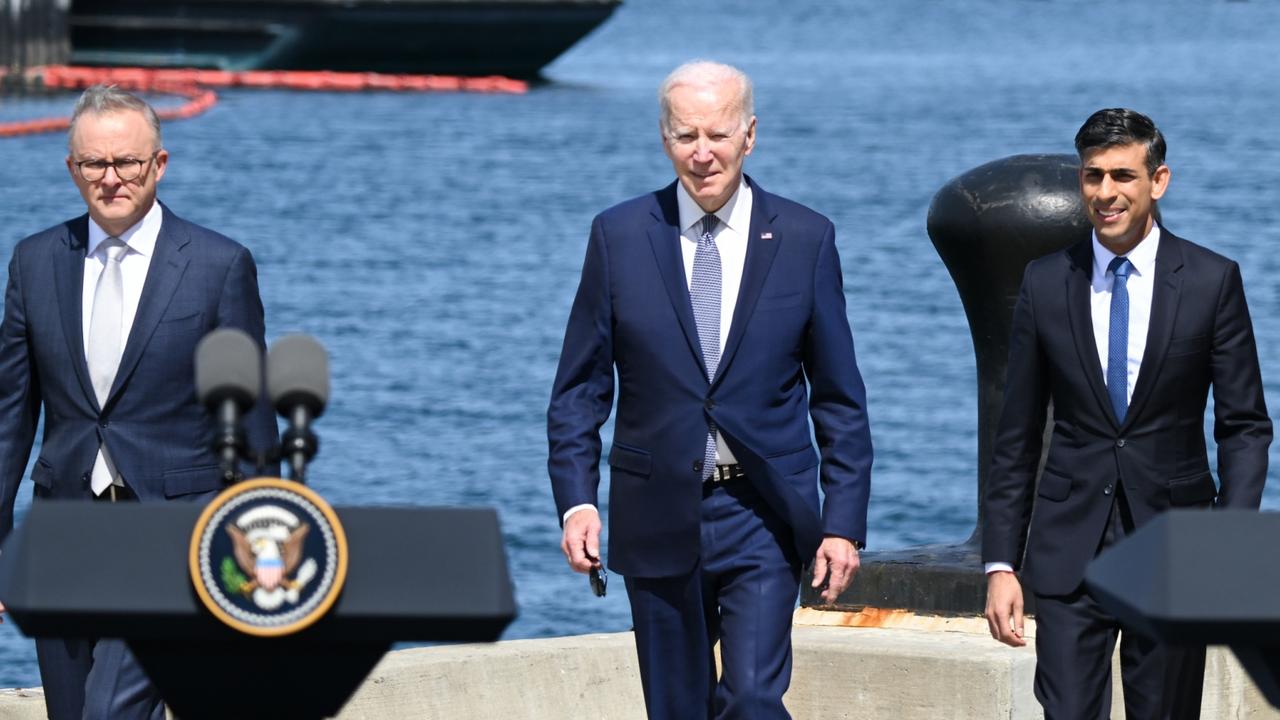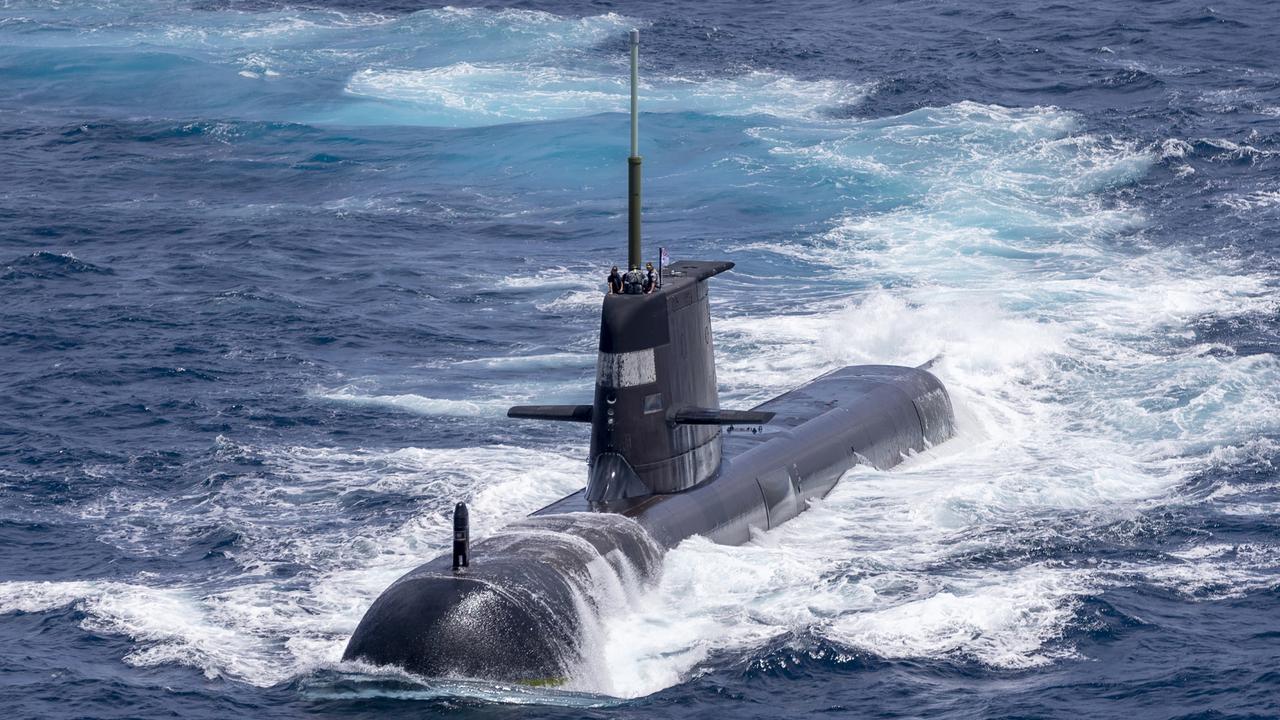‘Disgusting’: ABC rant sums up nation’s anger on $368bn nuclear submarine deal
An ABC listener held back tears when she described her anger about Australia’s astronomical spending on nuclear submarines.
Australians have reacted with fury to the historic $368 billion AUKUS deal for homemade nuclear submarines.
The fine details of the deal were announced on Tuesday by Prime Minister Anthony Albanese alongside British Prime Minister Rishi Sunak and American President Joe Biden in San Diego.
The federal government will buy at least three American-manufactured nuclear submarines and contribute “significant additional resources” to US shipyards.
There will also be an option to purchase another two under the landmark AUKUS deal and design and development work will continue on a brand new submarine, known as the SSN-AUKUS, “leveraging” work the British have already been doing to replace their Astute-class submarines.

A talkback caller on ABC radio in Melbourne on Tuesday morning told host Rafael Epstein the deal was a “heartbreakingly disgusting” amount of money to spend on defence when everyday Australians were struggling.
“I have a teenager who is having a mental health crisis,” the woman from Glen Waverley said while holding back tears.
“I’ve been told it’s a 10-month wait to get him to see a psychologist. It’s even longer to get him to see a psychiatrist,” she said.
“They’re not doing anything to help a teenager who is self-harming but they spend money on submarines.”
If Labor was still interested in the light on the hill, they would dump the Stage 3 tax cuts, and axe the subs deal. No one in their right mind wants to be part of AUKUS.
— Shelley Buttriss (@BNWishere) March 13, 2023
Guardian Journalist Amy Remeikis took exception with a phrase by Defence Minister Richard Marles, who called the deal “an investment we cannot afford not to make”.
“Would have thought ending inter generational poverty and ensuring people have a decent quality of life was also an investment we couldn’t afford not to make and yet somehow, here we are,” she wrote on Twitter
Richard Dunley, a naval and diplomatic historian, said the deal “looks best from Washington – they get major wins in terms of basing, maintenance support and recapitalisation in their yards”.
He noted the Australian perspective was “less clear”.
“The cost is astronomical,” he wrote on Twitter.
“Huge but still unknown amounts will be paid to the US in subsidies and then to buy the Virginias. This capability will only realise materialise mid-next decade, and is only a stopgap.”
This is a hugely complex deal that comes with massive risks. 5 obvious ones are: 1) money may not be enough to solve the 🇺🇸 ongoing shipbuilding woes. If there is no dramatic increase in construction will Aus get its boats, and will they be on time? 10/https://t.co/mxarICJQKf
— Richard Dunley (@redunley) March 13, 2023
The AUKUS deal has been touted as instrumental in maintaining peace and stability in the Indo-Pacific.
Mr Sunak, when announcing the deal, said in the last 18 months that the challenges facing Western democracies have grown.
“Russia’s illegal invasion of Ukraine, China’s growing assertiveness, the destabilising behaviour of Iran, and North Korea all threaten to create a world defined by danger, disorder and division,” he said.
“Faced with this new reality, it’s more important than ever we strengthen the resilience of our own countries.”

For those struggling to put food on the table and all those battling to keep their head above water, it is really reassuring that @AlboMP is happy to waste $20b a year on the useless AUKUS sub deal. They can battle through life knowing their Gov is looking after them.
— Charles Harvey (@CJHarvey56) March 12, 2023
Meanwhile, China’s President Xi Jinping has warned Australia was making an “expensive mistake” and that Beijing would continue to grow its military to counter the perceived threat.
He addressed the National People’s Congress on Monday saying the military would be bolstered to create a “great wall of steel”, labelled security the “bedrock of development” and accused Western colonial powers of “national humiliation”.
Beijing’s mouthpiece outlet, The Global Times, warned Australia was “planting a time bomb”.






